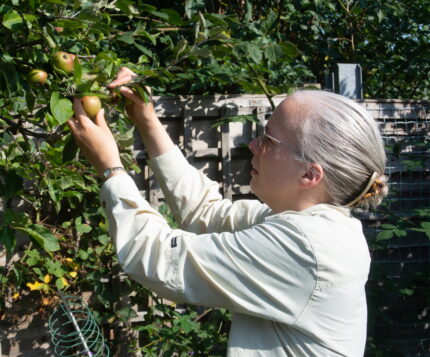In 2021 we will see a renewed focus on climate change as the UK hosts the Climate Change Conference (COP26) in Glasgow in November.
Prior to the Covid-19 crisis – it was intended to take place a year earlier and in the first part of 2020 – many universities declared a climate emergency. Growing concern among young people about climate change teaching in universities, from current and prospective students, is pushing it onto the agenda of higher education leaders.
Student concern
Levels of concern about climate change in 18-24 year olds are notable in a number of surveys including YouGov in early 2020, with 77 per cent fairly or very concerned. The National Union of Students tracker shows that those who are “fairly concerned” or “very concerned” about climate change has risen from 74 per cent in 2014 to 91 per cent in 2019. Concerns have not receded as a result of Covid-19. A Zurich survey showed that 7-17 year olds want more climate change teaching in school and do not feel listened to. This presents a challenge for universities as these students move into higher education.
Few universities have started to think through the implications. One exception is the University of Winchester, which commissioned a survey of 16-18 year olds who intend to study at university. It showed 54 per cent thought that climate change was the single most important issue facing us. Prospective students are looking at universities’ concern for the environment, with a quarter putting the environment in their top three considerations.
It’s about more than bins and bulbs
If universities are serious about calling a climate emergency, it has significant implications for core activities of teaching and research. This goes much further than simply greening the university estate, where significant progress has already been made.
Climate change has re-emerged as a strategic priority in the higher education sector with the establishment of the Climate Commission for Higher Education. In addition, the QAA and Advance HE are revising the 2014 guidance on Education for Sustainable Development (ESD).
The draft guidance (a consultation is running until 22 January 2021) raises many questions for both strategic leaders and programme teams but frustratingly provides few answers about the most effective strategic approaches to embed climate change in the curriculum. There is a missed opportunity to engage academics outside of geography and environmental science with climate change. This approach risks maintaining current siloed thinking and the consultation lacks persuasive arguments to bring other disciplines onboard.
From problems to solutions
The Sustainability Leadership Scorecard by EAUC and ARUP highlights the pressing need for universities to develop stronger links between wider sustainability work and the curriculum. Teaching and learning is the lowest scoring indicator, with no overall progress 2019-20. The relevance of climate change teaching is also a cause for concern. A recent international study found more focus on environmental problems (water pollution and air pollution) rather than potential solutions (for example, smart cities and renewable energy). A survey of employers has shown their disappointment with the lack of solutions-focused teaching in the core curriculum and the limited use of authentic approaches in teaching.
Seven principles for teaching climate change
In the spring and summer of 2020 we carried out research looking at climate change teaching in the curriculum. In parallel, we studied degree programmes in the UK and Ireland where climate change commonly features (geography and related courses) and those where it is not commonly taught (such as law, chemistry, modern languages, fashion, business…). We have developed seven principles to assist programme teams to improve climate change teaching in environmentally-related degree programmes. We believe these have wider applicability across many disciplines.
- Climate change should be framed as a super-wicked problem: Programme teams should develop a clear intellectual position on climate change informed by the conceptual framing of climate change as a super-wicked problem. This should be articulated at the programme level to enable module content to be orientated around it.
- Teaching should be solutions-focused: It should develop the skills required for students to design and implement innovative mitigations and solutions, not just teach solutions and mitigations that are currently used or offer purely scientific or cultural accounts of climate change.
- Students’ skills to engage with climate change and wicked problems should be clearly scaffolded: climate change should be carefully integrated throughout levels of study and modules so advanced skills are progressively developed during a programme.
- Assessment should be authentic: Assessment strategies should focus on opportunities for students to apply their climate change knowledge and skills to contexts relevant to professional practices.
- Students’ identity as a professional practitioner should be developed: Students should have opportunities to develop an awareness of their responsibility to help take better professional decisions in the context of climate change.
- Teaching about climate change should be delivered using climate-aware methods: Carbon-intensive approaches to teaching (like air travel) should be avoided and replaced with practices that model climate-sensitive behaviours (such as rail travel, or using local environments).
- Technology should meaningfully enrich climate change teaching: Students should be given opportunities to develop an aptitude for using technology innovatively to critically explore data and communicate messages creatively.
If society is going to address the challenges and disruption from climate change, we owe our current students and future leaders teaching that delivers the skills and creative thinking they need to succeed. We hope our principles are a useful tool for colleagues shaping their own teaching in higher education.















These principals are really welcome as we certainly need to engage more academics than the Geographers! I’m all for solutions but we need to ensure all learners sufficiently understand the causes too – a basic climate literacy for all we at EAUC advocate. Be good to collaborate on this and identify any institutions your research identified as doing well.
Thanks Iain for your supportive comments. Despite all of the challenges we are facing in higher education, its great to see the commitment from so many colleagues to continue and grow their work in Climate Change and Education for Sustainable Development. Yes we are very keen to carry out research interviews with colleagues who are teaching climate change in subjects where it is not traditionally taught.